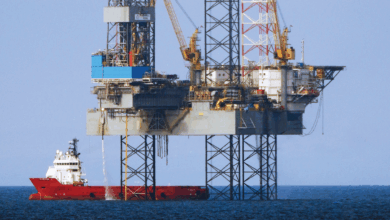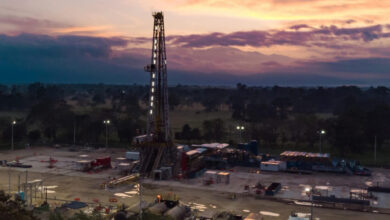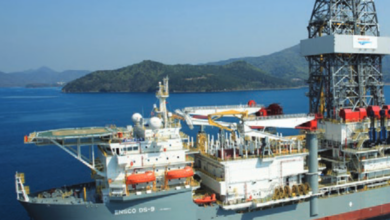Equipment ownership provision of Nigerian local content act may require industry’s immediate focus
By Linda Hsieh, Managing Editor

The Nigerian oil and gas industry has evolved significantly since 2010, spurred by the local content act. Whereas the country used to be dominated by IOCs and international drilling contractors, today an increasing number of indigenous operators and drilling companies are being established and playing key roles in pushing the market forward. In particular, these local players are picking up onshore and shallow-water assets being divested by IOCs, who are moving instead into the bigger-dollar deepwater projects. Speaking at the 2014 IADC Drilling Africa Conference in Paris on 2 October, Dr Olushola Ismail, Head of Sales & Marketing for Oando Energy Services, discussed the impacts that the local content act has had on the Nigerian E&P sector.
The Nigerian Oil and Gas Industry Content Development (NOGICD) Act was introduced in 2010 to promote indigenous participation in the local oil and gas industry. “The act also serves to support strategic partnering, where there is an international company that is able to transfer knowledge and technology to the Nigerian alliance partner,” Dr Ismail said. It further serves to promote the establishment of support industries and to maximize the utilization of Nigerian human resources.
There are five key provisions of the act, according to Dr Ismail:
- Supply of goods and services by Nigerian vendors.
- Financing, insurance and legal services.
- Employment of Nigerian personnel.
- Equipment ownership by Nigerian companies.
- Training for personnel through institutions approved by the Oil and Gas Trainers Association of Nigeria.
Of these five, it’s the fourth provision around equipment ownership that requires immediate focus, Dr Ismail said. The NOGICD Act already provides exclusive consideration to Nigerian companies in the land and swamp terrains. “However, when you look at deepwater, what the act is saying is, international service companies that are providing services through their Nigerian subsidiary must be able to demonstrate that the Nigerian subsidiary owns 50% of the assets that are deployed to the services being provided,” she explained. “What the Nigerian Content Development and Monitoring Board (NCDMB) wants to see is that the Nigerian entity has a vested interest in the equipment that has been supplied for the service.”
In the first few years of the NOGICD Act coming into law, the industry has been afforded some compliance flexibility by the NCDMB, which is responsible for enforcement of the act. “But over a period of time, we’re seeing a shift,” Dr Ismail said. “We’re seeing more enforcement on the side of the Nigerian Content Development and Monitoring Board. We’re seeing more Nigerian companies comply, and it’s making it harder for the companies who are not complying with the law.”
In particular, the equipment ownership provision demands immediate attention because of the level of alliance that’s required for two parties to own an asset, she said. “Today I’m not aware of any multinational or international drilling company that has complied fully with this aspect of the law,” she stated. “We are beginning to see a gradual shift where Nigerian drilling contractors are forming alliances with international drilling contractors who are willing to meet the intent of this scope.”
One challenge to achieving compliance is the willingness of the asset owner to divest a significant percentage of its asset to a Nigerian entity. “In the past, this may have been considered an area where there was room for discussion, but today we’re beginning to see Nigerian companies and international drilling contractors putting their money where their mouth is. They’re beginning to comply. I don’t believe that waivers will be given much longer on this aspect of the law,” Dr Ismail said.
The large initial capital outlay involved is another challenge. “How many Nigerian drilling contractors are able to raise the requisite finance to support this aspect of the law? Not many,” especially when you’re talking upwards of $600 million for a deepwater asset. Dr Ismail advised international companies to be careful when selecting their Nigerian partner. “It’s very important that the financial due diligence is a robust exercise, and the company has the right balance sheet to support such investments.”
She further urged international companies not to think of such strategic alliances as simply having agents in the country. “If an international company wants to work in Nigeria, you have to identify the right partner. The right partner is not one that doesn’t know how to add value to the project. If all they want to do is take a percentage of profit or revenue and do nothing, then that is not the right partner. Most of the time, those sort of relationships fail.”




